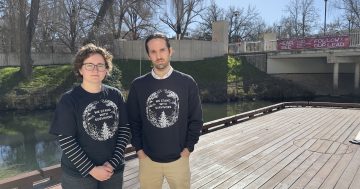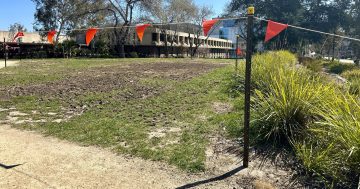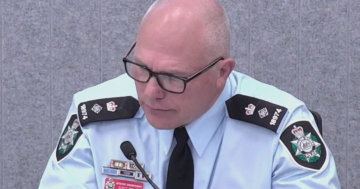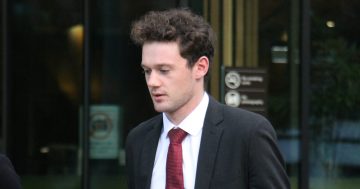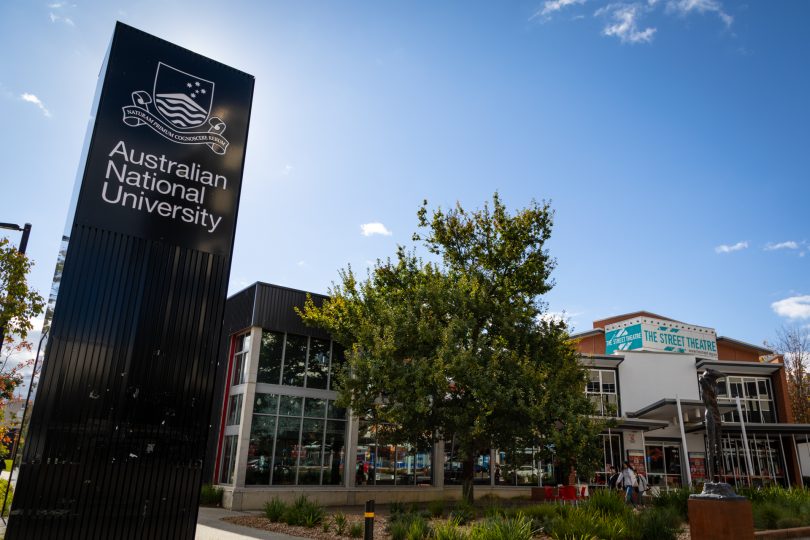
The ANU has released data revealing disclosures about sexual assault and harassment have increased dramatically in the space of a year. Photo: Michelle Kroll.
Disclosures about sexual assault or harassment increased by almost 50 per cent year-on-year, while formal reports more than tripled at the Australian National University (ANU).
While the university said it’s comforted by the report because it shows people are increasingly “feeling safe to come forward no matter where the incidents occur” and use the streamlined reporting system, advocates say the picture is more complex than that.
According to the university’s data, in the two-year period between October 2019 and 2021, the number of disclosures made through the online tool jumped from 250 in the first year to 355 the next.
The number of formal reports received jumped from nine in 2020 to 31 in 2021.
“ANU has a commitment to preventing sexual assault and sexual harassment incidents and raising awareness of supports available,” a spokesperson said.
However, some people still have concerns.
Camille Schloeffel is the founder of The STOP Campaign – an organisation dedicated to driving cultural change on campus. She said the reporting process still wasn’t as simple nor as safe as it could be.
Of huge concern is the length of the form a person is required to fill in when reporting assault or misconduct – currently, the disclosure form contains 66 questions.
“Even if all of the questions are mandatory, which they aren’t, that is still not a trauma-informed process,” Ms Schloeffel said. “It doesn’t acknowledge what trauma does to the brain and our bodies, and how that can be both really overwhelming and triggering to survivors and supporters.”
Ms Schloeffel said she was aware of people who had tried to fill out the form but gave up because it was too confusing.
“I don’t understand what the purpose would be of asking for such intricate detail when most of the time they don’t really act on that.”
Ms Schloeffel said she remained saddened by what she saw as a lack of progress being made by the ANU to actually prevent sexual violence from occurring in the first place. She argued it was difficult to say whether a more transparent culture really did lead to the high incidences of reporting.
Either way, she said she was glad to see people feeling more comfortable coming forward to report their experiences but claimed the way the ANU had been known to treat victim-survivors was “institutional betrayal” and had been “quite horrible to be honest”.
Ms Schloeffel further noted the university would do better to attribute a changing culture to the work of student activists, senior residents and student-led organisations on campus than to itself.
“They haven’t acknowledged that at all,” she said.
This is a sentiment echoed by President of the ANU Students’ Association (ANUSA) Christian Flynn, who said the work of student advocates and survivors often went unnoticed.
“Survivors made these changes happen, and their voices should not be ignored by the institution that let them down,” Mr Flynn said.
The ANU’s Sexual Misconduct Disclosure form was initially introduced in 2019 as a part of the university’s Sexual Violence Prevention Strategy released in response to a damning Human Rights Commission report in 2017.
The HRC found the rates of reported sexual assault on campus at ANU were more than double the national average and almost 40 per cent of students had been sexually harassed in the course of 12 months.
Ms Schloeffel said it was important the university focused on actually preventing sexual assault from happening on campus in the first place and Mr Flynn agreed.
“The release of data is not an end in itself; student advocates pushed for this release to push the ANU to support and protect survivors and students better than before,” he said.
According to the data, all reports that went on to an inquiry (21) last year had triggered reviews and inquiries that uncovered misconduct.
Seven were still in progress and had yet to be heard by an inquiry while an additional three were outside the jurisdiction of the university.
Mr Flynn said it was important transparent data was available about what outcomes arose from disclosures and reports so survivors understood the options available to them.
The university had initially promised to release data along these lines in 2018.
If you or someone you know is impacted by sexual assault, domestic or family violence, call 1800RESPECT (1800 737 732) or visit www.1800RESPECT.org.au.
DVCS’s free service can be reached 24/7 on 6280 0900, via SMS on 0421 268 492, through email at crisis@dvcs.org.au or on their website dvcs.org.au. In an emergency, call triple-zero (000).












